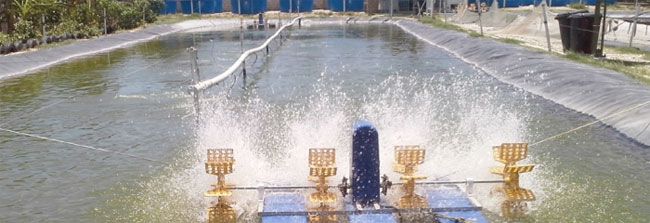|
From:TheBahamasWeekly.com Caribbean News
Belize City - The region’s fisheries stakeholders to deepen their understanding of the “blue growth concept” at a two-day workshop in St. George’s, Grenada under the theme, “Investing in Blue Economic Growth” on November 20-21, 2014. The Blue Growth Concept is mainly concerned about how to generate economic growth from the living resources in the oceans and seas. The Blue Growth seeks to achieve growth by sustainable use and conservation of aquatic renewable resources in the exclusive economic zones (EEZ) and on the high seas, in an economically, socially and environmentally responsible manner. The major components of the Blue Growth concept include: (1) marine and inland capture fisheries; (2) aquaculture development, (3) livelihoods and food systems, and (4) ecosystem services and marine biodiversity conservation at regional and national levels. The regional workshop is intended to promote blue economic growth in CARICOM countries through enhanced involvement of fisheries and aquaculture stakeholders in the policy process and improved, broad public understanding and appreciation of the challenges and opportunities of the industry and its policies, and what this means for investing in blue growth. Milton Haughton, executive director of Caribbean Regional Fisheries Mechanism (CRFM) says, “the benefits in the sector are significant to the region and the global community, these range from foreign exchange earnings, employment to poverty alleviation and food security. Many of the stakeholders including the Fisherfolk on the ground do not sufficiently understand the importance of these benefits to value them adequately to achieve sustainable management of the fisheries resources”. CRFM has teamed up with the Caribbean Network of Fisherfolk Organisations supported by the Technical Centre for Agricultural and Rural Cooperation (CTA) ACP-EU to raise public awareness in the Caribbean by deepening knowledge and capacity of primary industry stakeholders for more effective stakeholder positioning and participation in fisheries policy and management actions. The workshop will address the following: Under Governance and Policy
Under Trade and Market Access
BACKGROUND Present land use and marine space usage planning do not reflect holistic consideration of the various sectoral needs, with low priority given to fisheries and aquaculture needs. This creates a challenge with regard to capacity for adaptation of economic activities especially in the face of climate change, and also for aquaculture development opportunities that a real ready challenged often by limited land and coastal marine space, environmental concerns, and economic viability. All challenges are exacerbated by the limited promotion and understanding of the sector's contributions, as well as its potential. Previous efforts by CRFM and CTA to build fisherfolk capacity to participate in the governance process has seen the successful establishment of the Caribbean Network of Fisherfolk Organizations (CNFO), improved fisherfolk understanding of key policy issues, and more active CNFO participation in certain policy advisory activities. Such capacity building and participation in the policy advisory activities are very much in the preliminary stages, and continued effort is essential to deepen further the understanding of fisherfolk of some of the more technical aspects of fisheries policies, e.g. aquaculture, SPS, and mainstreaming precautionary and ecosystem approaches in the context of climate change, and by this means, strengthen their capacity to participate actively and more fully in ensuring successful implementation, monitoring and evaluation of agreed policies.
|
